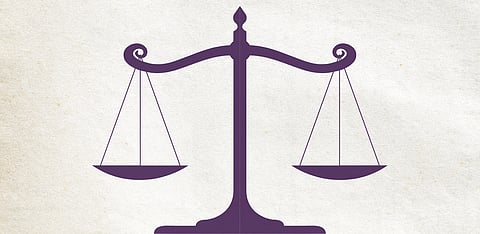

The VP should have suggested that the judiciary is not constitutive of the delegates of the sovereign of India. Therefore, they cannot make new laws or override the constitutional actions of the legislature, through the development of new doctrines.
—–
THE Vice President (VP) of India, Jagdish Dhankar recently made headlines for his critique of Supreme Court judges allegedly overreaching into the realm of the legislature by making new laws. He criticized the Court for attempting to dilute "parliamentary sovereignty" by imposing restrictions on the power of the Parliament to amend the constitution through the introduction of the 'Basic Structure doctrine' in 1973.
While a large number of scholars have opined whether the basic structure doctrine is important or even constitutional, the VP's assertion that India was founded on "parliamentary sovereignty" seems to have flown under the radar. That is incorrect. India was founded on "popular sovereignty".
For the uninitiated, it is important to note that the basic structure doctrine was developed by the Supreme Court and promulgated in the judgement of Keshavananda Bharati versus Union of India (1973). The doctrine essentially imposes limits on the seemingly unrestricted powers of the Parliament to amend the Indian Constitution. It states that some principles (like fundamental rights, judicial independence, and secularism) are so inherently important to the Constitution, that without these the structure of the Constitution would change. The Parliament cannot take these away through amendments.
“The basic structure doctrine essentially imposes limits on the seemingly unrestricted powers of the Parliament to amend the Constitution. It states that some principles (like fundamental rights, judicial independence, and secularism) are so inherently important to the Constitution, that without these the structure of the Constitution would change.
The Supreme Court has since this case expanded the ambit of this doctrine to also opine that judicial independence is a part of the basic structure of the constitution. Extending this argument, in 2015 it held that the National Judicial Appointments Commission (NJAC) Amendment to the Constitution was unconstitutional and invalid. The NJAC had sought to replace the collegium system with a body of executive and judicial officers to make these decisions together. In doing so, the court also upheld the validity of the collegium system of judicial appointments and transfers, another concept that was not articulated in the Constitution but was given life, through interpretation by the Supreme Court.
This rejection of an alternate model of judicial appointment was what the VP was critiquing. However, in doing so, he went a bit too far to say that India was founded on parliamentary sovereignty. It is important to debunk this.
The most important power of a sovereign is the power to make law. The concept of parliamentary sovereignty is often best exemplified by the British model. In the absence of a written constitution, it is often argued that the law-making power of the British parliament is not delegated to it by the people of the United Kingdom, but by the Monarch. However, republics do not function in this way.
India, in choosing to be a Democratic Republic, did not confer sovereignty on any particular person or governmental office bearer. The President, as the head of the Indian Republic, is still not the sovereign. The Prime Minister, as the head of the Union Government of India, is also not the sovereign. The Parliament, as an institution, is not the sovereign of India. However, if the Parliament makes the law, where did it get its power from?
As per the Preamble, in adopting a set of rules to govern, it is the people of India, who collectively constitute the sovereign of India. It is now the 1.5 billion people of India, who through the exercise of their universal adult franchise during elections, delegate their power to legislate to their respective elected representatives.
Schedule VII of the Constitution divides the fields of law-making. The Union List, State List and Concurrent List enumerate the subjects on which the Union, state or both governments can make laws, respectively. The people delegate the power to the Members of Parliament to make laws in the Parliament, and to the Members of Legislative Assemblies (MLAs) to make laws in the Vidhan Sabha.
“India, in choosing to be a Democratic Republic, did not confer sovereignty on any particular person or governmental office bearer.
If India was founded on Parliamentary sovereignty, the MLAs in the Vidhan Sabha would not have the power to make laws, unless conferred upon them through a Parliamentary act. The Constitution is the document that gives legitimacy to both the central and state legislatures as law-making bodies. One cannot be assumed to pre-date another.
Since both bodies exercise sovereign powers to legislate, it is only logical to confirm that the common denominator – the citizens who elect them- is the real sovereign.
It is this argument that the VP should have made. As delegates of the sovereign, it is the exclusive domain of the legislative bodies to make law. At the national level, on matters that are common to the country, and therefore listed in the Union List, only the Parliament has the right to make law.
The separation of powers doctrine states that the three organs of the Indian State – legislature, executive and judiciary – have different jobs and should not interfere with each other's respective domains. The VP should have used this line of argument to suggest that the judiciary is not constitutive of the delegates of the sovereign of India. Therefore, they cannot make new laws or override the constitutional actions of the legislature, through the development of new doctrines.
If the sovereign of India – the people – disagrees, they can choose to change their delegates and rectify the errors. It is not a job for the Supreme Court.